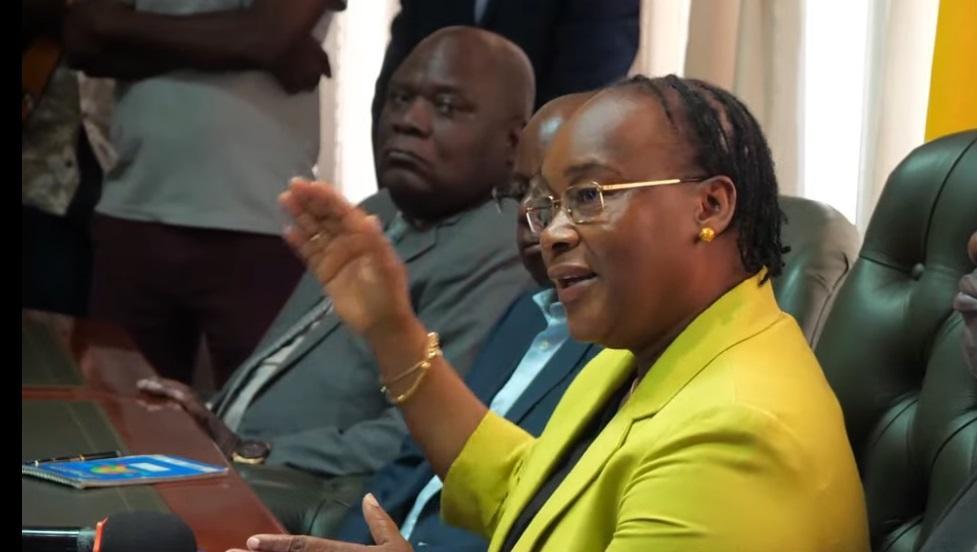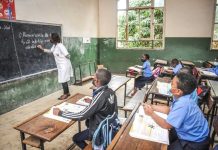Africa-Press – Mozambique. The president of the Mozambican Constitutional Council (CC), Lúcia Ribeiro, said today that the body would analyse “the discrepancies” in the announced results of the October general elections next week, but the body was not carrying out a recount of the votes.
“We want to say that the CC is not recounting the votes,” Ribeiro said this morning during a meeting with representatives of the Mozambican National Resistance (Renamo, the largest opposition party), justifying the decision with the fact that the National Elections Commission (CNE) itself had admitted, when it announced the results of the general count, “discrepancies between the three elections, but that it had not had time to verify”.
“Therefore, the Constitutional Council, being a judicial body, cannot give that same answer. But it remains a curiosity and a responsibility and a duty to understand why there is a discrepancy and from where did these discrepancies arose,” Ribeiro said.
The Constitutional Council is responsible for validating and proclaiming the results of the October 9 general election, which included presidential, legislative and provincial assembly elections.
“But in this case, in which there is an outcry regarding the numbers, then it is the responsibility of the CC, which has to sign these maps, these numbers (…). We thought it was up to us to verify what the problem was and where the problem lies. We notified the CNE to explain to us why there had been discrepancies and this response is included in the case, which will then be evaluated next week, when we sit down to evaluate the numbers,” Ribeiro explained.
She added that, more than two months after the elections, the CC is now in the digitization phase, involving a team of 57 people, including seven judges and technicians.
“We will take our numbers, compare them with the CNE numbers, compare them with the centralization notices, district counting notices, in order to understand where the so-called stuffing [of ballot papers] took place. And from there we will form an opinion and be able to decide. That is why the CC decided to take on this responsibility of carrying out the verification,” Ribeiro stated.
Ribeiro said that the Mozambican electoral process involves first validating and only then announcing the results, in accordance with legislation approved by parliament, contrary to what happens in other countries, which proclaim the winners of the poll with substantially shorter deadlines and only then decide on any disputes, with the CC being the final decision-making body in Mozambique.
Still, she admits that the demonstrations and strikes contesting the results announced by the CNE, which have already caused more than a hundred deaths, show that it is necessary to “rethink the electoral system in the future”.
“But this process shows that more than the legal framework, it is true that the method, the system, the voting is also part of the legal framework, but instead of thinking only about the laws, we have to think about what kind of system we want, what kind of voting, what kind of counting we want. Whether these four stages [counting at the polling station, district, provincial and central] before reaching the CC are beneficial. (…) Between these elections and the next ones in four years, the local elections, we have three years to think,” she argued.
Ribeiro acknowledged that, with the current system, “there is a lot of paperwork that needs to be seen”, and it is necessary to “think about whether it is possible to reduce it”. “Probably a reduction in the amount of paperwork will be accompanied by a reduction in these problems, which are cyclically highlighted in our electoral processes.”
One of the demands that has been made by national and international observers and by opposition political parties, who have denounced various irregularities, is the public disclosure of all the minutes and notices of the vote on October 9, which, for Lúcia Ribeiro, is not feasible.
“Because there are 26,000 polling stations – times three [ballots]. So, for now, to publish this on the Internet would probably take (…) about four to five months,” she said, concluding: “Therefore, this is how we organize ourselves to be able to respond to this clamour regarding this electoral process, to seek the much-desired electoral truth and see if we can also contribute to peace in our country.”
Although there are no specific deadlines, given the approaching end of the current legislature on January 12, the CC has until December 23 to proclaim the election results.
For More News And Analysis About Mozambique Follow Africa-Press






